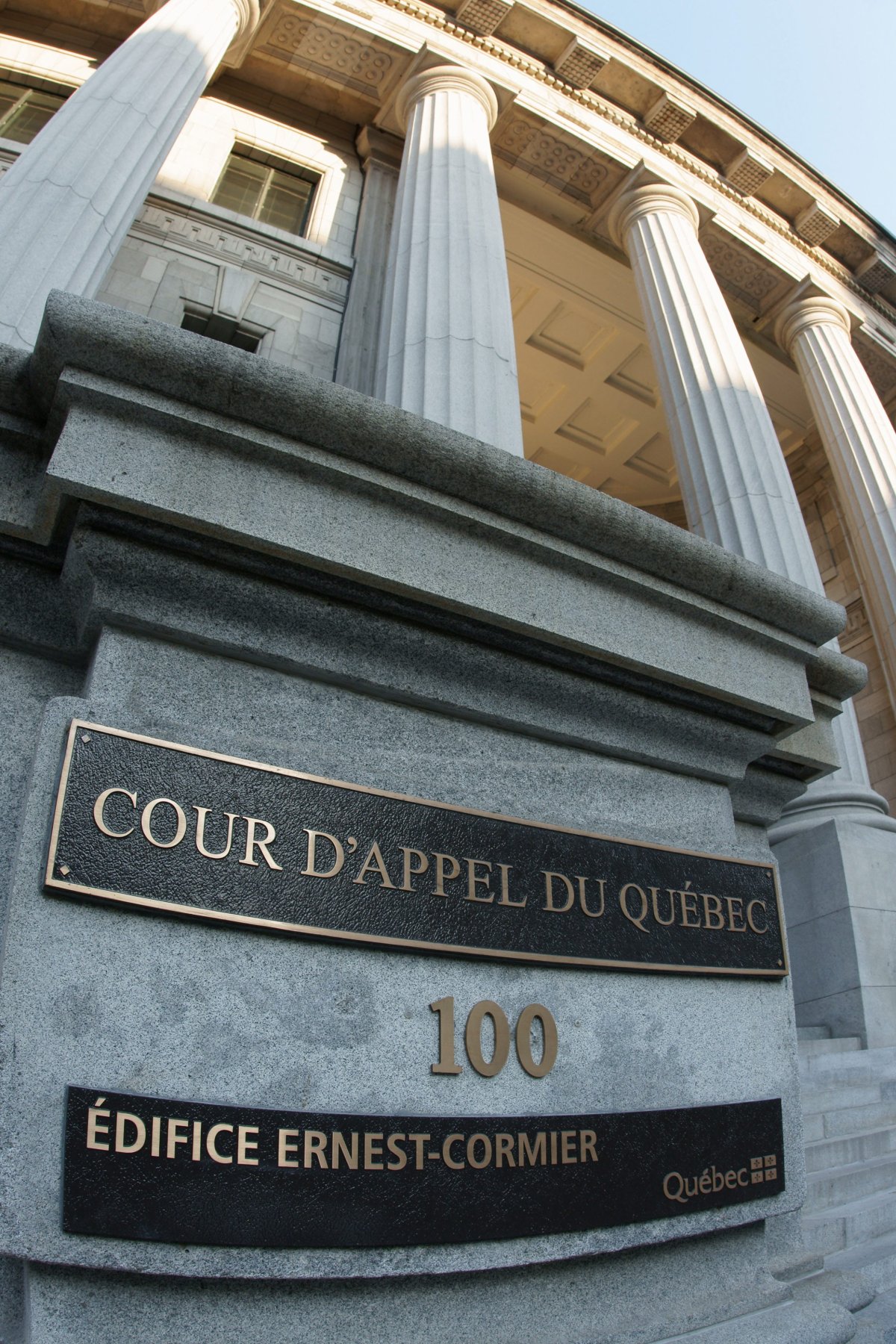OTTAWA – The Chief Justice of Quebec will argue against a Toronto lawyer’s challenge to a Quebec court appointment by saying the Federal Court has no jurisdiction in her province.

In a written notice of appearance filed in Montreal on Monday, Chief Justice Nicole Duval Hesler of the Quebec Court of Appeal says in French she does not recognize the jurisdiction of the Federal Court.
Hesler will also ask the court to strike down lawyer Rocco Galati’s Federal Court challenge of Justice Robert Mainville’s appointment to the Quebec Court of Appeal, her lawyer said.
“She’ll be saying the Federal Court of Canada doesn’t have jurisdiction to order the Chief Justice of the Court of Appeal to do anything,” Hesler’s lawyer, Doug Mitchell, said in an interview.
“I think it’s important for the Court of Appeal to make sure they don’t get told to do something by somebody that doesn’t have the authority to tell them what to do.”
Galati called Hesler’s argument “nonsense.” “I’m not reviewing one of her judgments,” he said.
Galati believes he does have jurisdiction because Quebec’s Superior Court and Court of Appeal judges are appointed federally, and the Chief Justice of the Supreme Court swears-in the judges, he said.
But even if Mainville is sworn in, his appointment can later be ruled void, Galati said.
“These things have to be done carefully otherwise it causes a bit of chaos in the court,” he said.
In a notice filed last Friday, the Conservative government also said it plans to oppose Galati’s motion.
Galati wants the Federal Court of Canada to declare Mainville, a Federal Court of Appeal judge, ineligible to sit on the Quebec Court of Appeal, because Sec. 98 of the Constitution says Quebec judges “shall be selected from the Bar of that Province.”
He also wants an injunction that prevents Mainville from sitting on the court, which he is eligible to do as of July 1, although it is unlikely he will officially be sworn in on that date.
An assistant with Hesler’s office said judges are typically not sworn in as soon as they become eligible.
“It’s not right away that his nomination is effective,” Hesler’s assistant Lolita Deshaies said in French, adding she was unaware of the Toronto lawyer’s challenge.
“I’m in Quebec, I’m really not up to date. I was starting to follow the news of their mayor, but then I had enough.”
Galati’s second challenge
Some legal experts aren’t so sure Galati even has a case.
Pierre Thibault, a civil law professor at the University of Ottawa, said he would be “very surprised” if the injunction is granted and Galati is successful in blocking Mainville’s appointment.
Thibault sees Mainville’s move as more of a transfer, because Mainville is already a judge moving from one superior court to another.
“In my opinion, it could be seen as a transfer instead of a pure nomination under Sec. 98 of the Constitution, which is clear that judges from the Quebec courts shall come from the bar,” Thibault said.
Earlier this month, Justice Minister Peter MacKay announced Mainville would move from the Federal Court to the Quebec appeal court, leading to speculation that Mainville is in line for an upcoming vacancy to fill a Quebec Supreme Court seat when Justice Louis LeBel retires in November.
MacKay appeared to confirm this theory in the House of Commons last week when he said Mainville’s “wealth of legal knowledge” will be welcome at the Supreme Court.
But he quickly backtracked and said he was referring to the Supreme Court, as in the Superior Court of the province.
MacKay defended Mainville’s appointment, calling him an “eminently qualified Quebec jurist,” who is valid under Section 3 of the Judges Act, which states a judge for a superior court must have had at least 10 years experience on the bar of that province.
Mainville spent 33 years on the Quebec bar, before being appointed to the Federal Court in 2009. He is an expert in aboriginal law and also has expertise in administrative law, constitutional law, and environmental and energy law, according to his biography.
READ MORE: MacKay wants consensus with Quebec on Supreme Court picks
It is the second challenge brought forward by Galati, who also argued Federal Court of Appeal judge Marc Nadon was ineligible to represent Quebec on the Supreme Court.
Nadon’s nomination was eventually quashed by the Supreme Court itself, leading to an embarrassing defeat for the Harper government.
MacKay’s spokeswoman, Paloma Aguilar, said Mainville expressed an interest in being transferred to the Quebec Court of Appeal for personal and professional reasons.
But Mainville did not have to fill out an application or go through a judicial advisory committee, because he is already a superior court judge, said Marc Giroux, deputy commissioner for the Office of the Commissioner for Federal Judicial Affairs Canada.
Aguilar said the Chief Justice in Quebec is now responsible for Mainville’s swearing in.
“The Minister of Justice is not involved in that decision so please refer further questions to the Quebec Court of Appeal,” Aguilar wrote in an email.
Mitchell, the Quebec Chief Justice’s lawyer, would not say whether Hesler supports Mainville’s appointment, but said if her challenge is successful, the Federal Court case would proceed without her participation.
He said he expects both Hesler’s motion and Galati’s challenge to be dealt with in the next few weeks.
“Something like this shouldn’t fester,” he said.



Comments